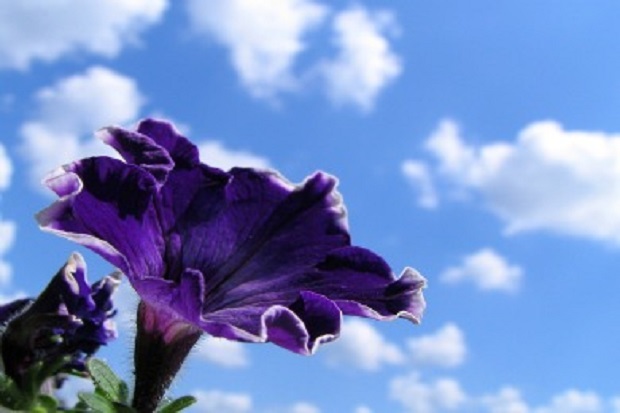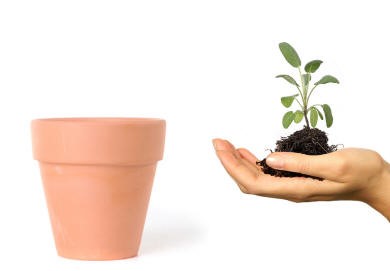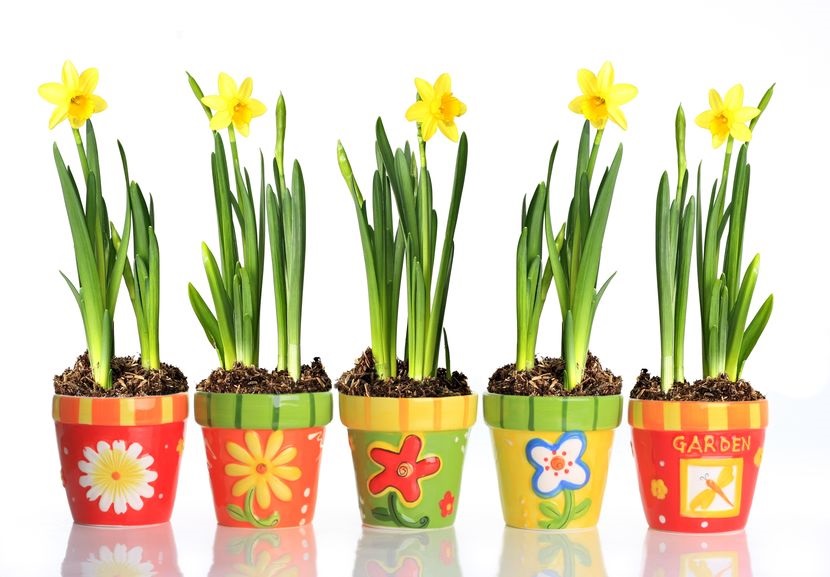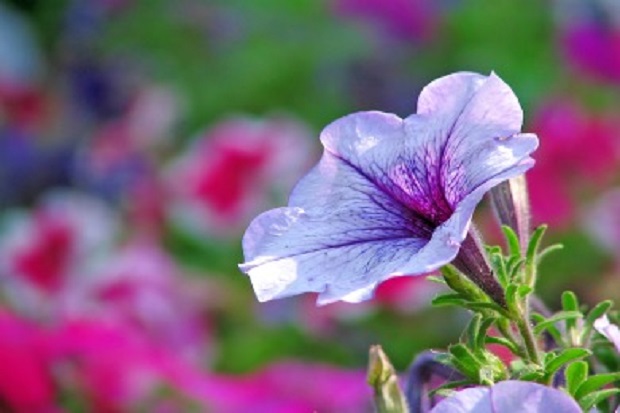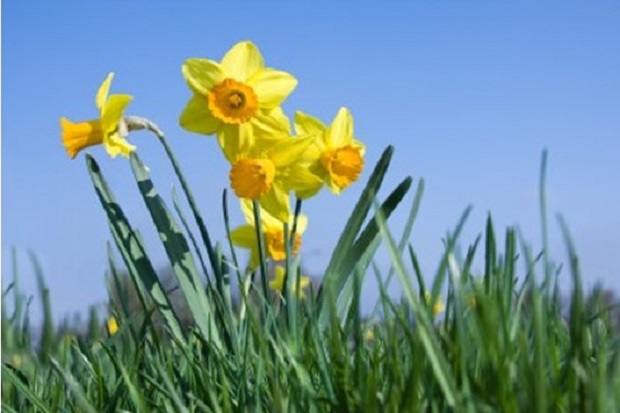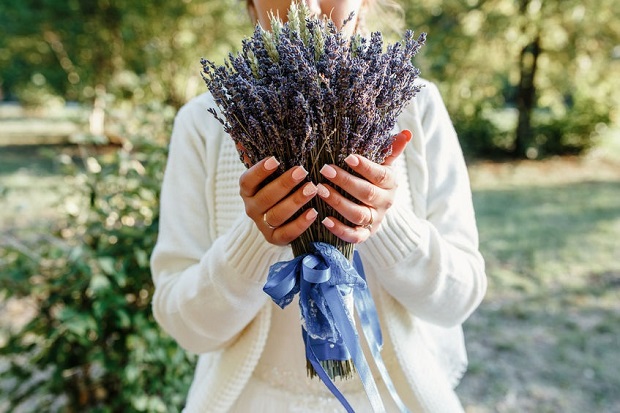
Lavender is an herb and a member of the mint family, often used in ancient times for its medicinal qualities. This plant has been used to heal skin conditions and calm queasy stomachs. Lavender is also known for its sweet scent and is often placed in sachets to provide clothing with an aromatic fragrance.
Jump Ahead
- Which Type of Lavender Dries Best?
- When Do I Harvest Lavender for Best Dried Quality?
- Steps to Air Drying Lavender
- Steps to Oven Drying Lavender
- Microwave Drying Lavender
- Resources
Which Type of Lavender Dries Best?
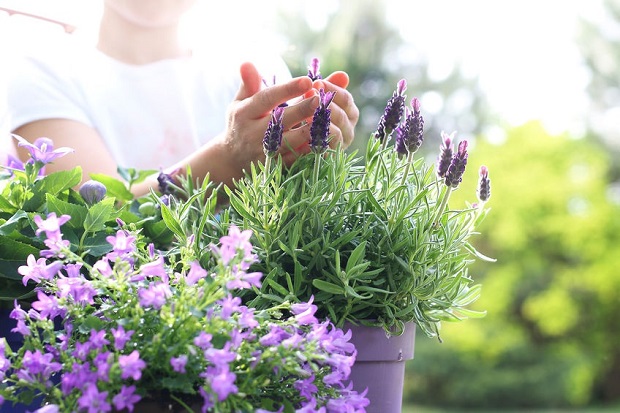
You can grow your lavender and dry it for personal use around your home. Lavender grows best in full sun and thrives in well-drained, non-acidic soil. There are several types of lavender. Some have pink flowers, while others produce purple, blue, or white blooms. If you are growing lavender for drying purposes, use the type that produces purple flowers, as these dry best.
When Do I Harvest Lavender for Best Dried Quality?
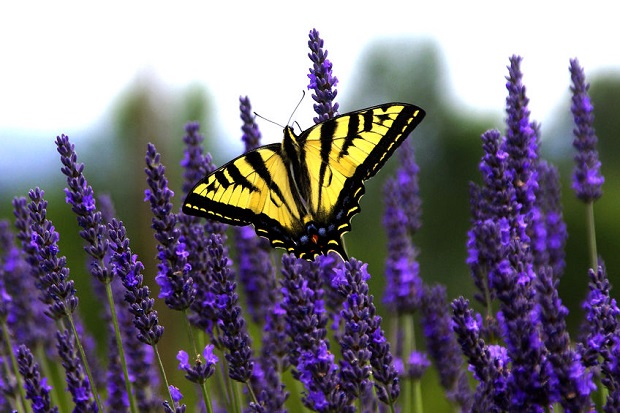
Lavender flowers air dry best when harvested when blooms are one-third open to completely open. You should harvest these flowers on a day when the sun is high and after the dew has dried on the blooms. When cutting flowers, leave stems 12 to 18 inches in length.
Steps to Air Drying Lavender
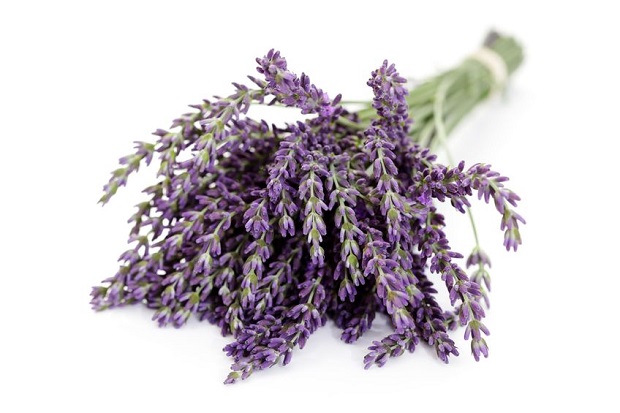
Gather the lavender in small bunches and secure them with twine. Secure the bunch loosely to allow for good air circulation during the drying process.
Hang the lavender bunches in a cool, dry room. This room should be dark or heavily shaded with good air circulation for the best results.
Run a small oscillating fan on low to promote proper air circulation if your room is not well-ventilated.
Store lavender flowers in storage bags or jars in a cool place once the plant stems are dry.
Tip: Lavender dries more quickly when the leaves are removed before drying.
Steps to Oven Drying Lavender
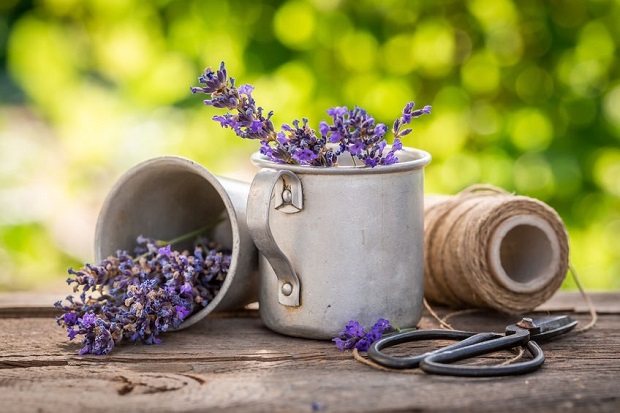
Traditionally, lavender is dried by hanging it upside down in bunches. It is then allowed to air dry over a long period of time. If you are impatient, however, lavender can be dried in the oven.
Oven drying can be preferable to air drying for a couple of reasons. It can prevent the growth of mold on the leaves, which can occur when moisture is allowed to stay on the leaves for too long. Oven drying can also save space. Extra room is not needed for an extended period of time as is required in air drying.
Preheat oven to 100 degrees Fahrenheit. To prevent moisture from building up, you should leave the door open slightly.
Arrange the lavender in a single layer on a cookie sheet to ensure that each has a chance to dry.
Check frequently to ensure the sprigs have not burned. The lavender is ready when the leaves crumble easily, usually after 10 or 15 minutes. If the leaves are still moist, flip them over and place them back into the oven for about 5 minutes.
After the leaves are dried thoroughly, allow them to cool before handling. They can then be crumbled up for storage or use.
Microwave Drying Lavender
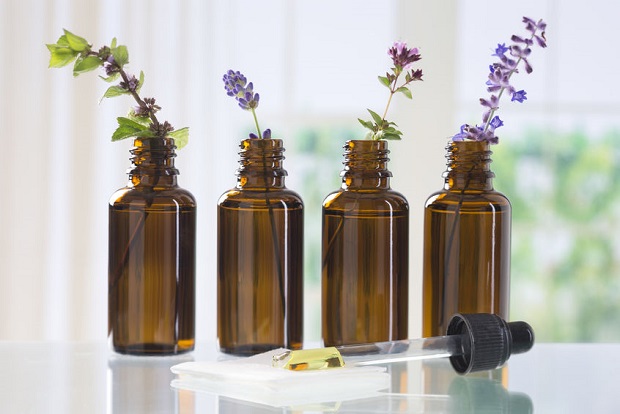
An easy way to dry fresh lavender is with a microwave oven.
Arrange the lavender in a single layer on two paper towels. If you don’t have paper towels available, you can use a sheet of newspaper or a paper plate. Do small batches at a time for the best results.
Place in the microwave and cover with another paper towel, newspaper, or paper plate.
Close the door and set the microwave on high for 1 minute.
Stop after 1 minute and check the herb. If it still feels damp, replace the paper towel and dry it for another minute.
Continue these short cooking spurts until the lavender has reached an acceptable dryness level.
Remove from the microwave and lay on a flat surface. Remove the top layers of paper and allow the lavender to cool.
Resources
- North Carolina Cooperative Extension – “Harvesting and Preserving Herbs for the Home Gardener.“
- OSU Extensions Service – “How to Dry Herbs.“
- IPM at ISU | Integrated Pest Management at Iowa State University – “Harvesting and Drying Herbs.“
- WSU Gardening in Western Washington – “Lavender.”
